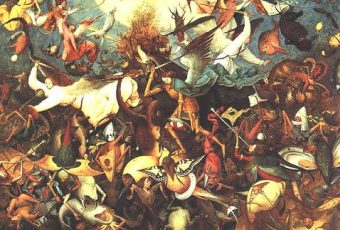 Have you ever tried to study or teach the books of Daniel and Revelation?
Have you ever tried to study or teach the books of Daniel and Revelation?
If so, you know how challenging they can be. This is partly because these books are two of the “Apocalyptic” books in the Bible. The apocalyptic books of the Bible are some of the hardest to read, study, understand, and teach.
I recently read an excellent book on how to study and teach these apocalyptic sections of the Bible. It is the book Interpreting Apocalyptic Literature by Richard Taylor.
In this book, Taylor provides an excellent summary of what Apocalyptic Literature is and why it is so difficult for modern readers to understand. He then moves on to provide numerous suggestions and guidelines for studying Apocalyptic Literature and teaching it to others (e.g., p 118f). Taylor also includes several warnings about the pitfalls that many ancient and modern Christians have fallen into when they study and teach these difficult portions of the Bible (p. 130f).
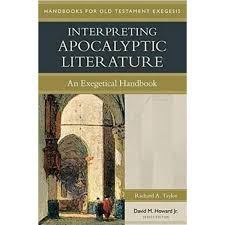 I found this book to be one of the best introductory books I have read on Apocalyptic Literature in the Bible, and highly recommend it for anybody who wants to study, teach, or preach through any of the Apocalyptic books or sections of the Bible. This is especially true if you plan on teaching the book of Daniel. I say this because the Taylor uses the book of Daniel to provide practical examples of how to read and teach Apocalyptic Literature. As such, this book almost serves as a good mini commentary on Daniel.
I found this book to be one of the best introductory books I have read on Apocalyptic Literature in the Bible, and highly recommend it for anybody who wants to study, teach, or preach through any of the Apocalyptic books or sections of the Bible. This is especially true if you plan on teaching the book of Daniel. I say this because the Taylor uses the book of Daniel to provide practical examples of how to read and teach Apocalyptic Literature. As such, this book almost serves as a good mini commentary on Daniel.
Of course, if you are studying Revelation, this book by Taylor will be helpful too, but there are not nearly as many tips or suggestions on Revelation as there are on Daniel. This is probably the only downfall to Taylor’s book, since Revelation tends to be more difficult to read and understand than Daniel. But I have previously provided some tips on reading Revelation, and there is another book in the series which focuses specifically on Revelation.
So, do you want to study and teach Daniel and other apocalyptic books of the Bible? Interpreting Apocalyptic Literature by Richard Taylor will lead you in the right direction.



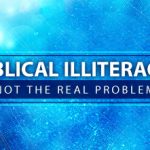
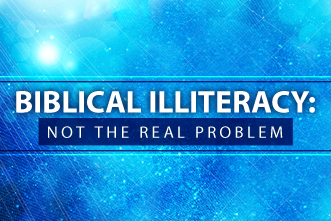 The problem is not a lack of biblical literacy; the problem is a lack of biblical living and loving, and to be honest, you don’t need to know much about the Bible in order to live and love like Jesus.
The problem is not a lack of biblical literacy; the problem is a lack of biblical living and loving, and to be honest, you don’t need to know much about the Bible in order to live and love like Jesus. 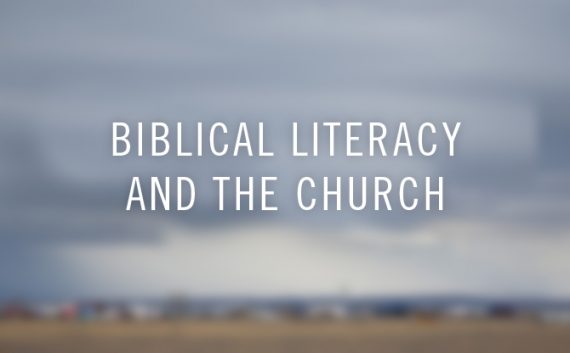
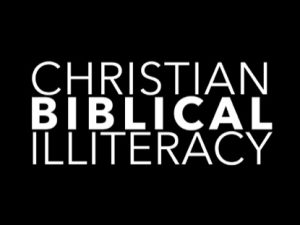
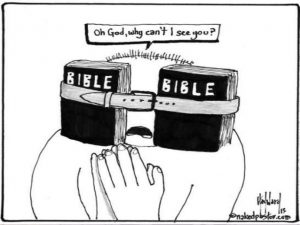 One example: Is God on the side of Hillary Clinton or Donald Trump? With either choice, you can find seminary-trained pastors and Bibles scholars who support one candidate or the other and use the Bible to do so, while accusing the other side of being biblically illiterate. I saw a post on Facebook the other day from a popular Northeastern Pastor who basically said, “How can any evangelical Christian support the racist, bigoted Donald Trump? Don’t you know what the Bible says?” And then he went on to quote some Bible verses which he thought should sway people to vote for Hillary.
One example: Is God on the side of Hillary Clinton or Donald Trump? With either choice, you can find seminary-trained pastors and Bibles scholars who support one candidate or the other and use the Bible to do so, while accusing the other side of being biblically illiterate. I saw a post on Facebook the other day from a popular Northeastern Pastor who basically said, “How can any evangelical Christian support the racist, bigoted Donald Trump? Don’t you know what the Bible says?” And then he went on to quote some Bible verses which he thought should sway people to vote for Hillary. Those questions are somewhat of a caricature of the real biblical literacy tests, but they’re not too far off.
Those questions are somewhat of a caricature of the real biblical literacy tests, but they’re not too far off. One big question I’ve been mulling over for the past five years or so is this “Is there such a thing as a SINGLE biblical world view, and even if so, is it a worldview that everyone should adopt? Is it the RIGHT worldview?” I am not sure the answer is “Yes” to either question.
One big question I’ve been mulling over for the past five years or so is this “Is there such a thing as a SINGLE biblical world view, and even if so, is it a worldview that everyone should adopt? Is it the RIGHT worldview?” I am not sure the answer is “Yes” to either question.
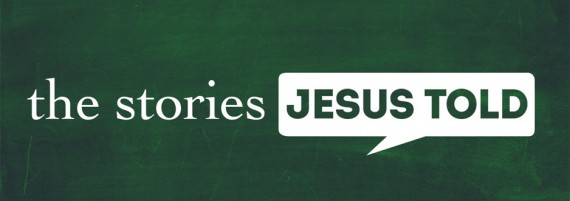
 If you want to include stories and illustrations to help people understand what you are saying, this is fine to do; just don’t say you are following the example of Jesus.
If you want to include stories and illustrations to help people understand what you are saying, this is fine to do; just don’t say you are following the example of Jesus. Most “Christian” stories are too sanitized to be any good.
Most “Christian” stories are too sanitized to be any good.
 Over at the “
Over at the “
 Babies.
Babies.
 Earlier I used a marriage as a metaphor, here’s another one: If you feel woefully out of shape physically, and once a week you attend a seminar on how to work out, or how to eat healthy, but then the rest of the week don’t live any different, can you complain about the seminars?
Earlier I used a marriage as a metaphor, here’s another one: If you feel woefully out of shape physically, and once a week you attend a seminar on how to work out, or how to eat healthy, but then the rest of the week don’t live any different, can you complain about the seminars?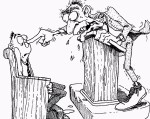
 I listened to a sermon today in which the preacher (I’m not going to call him a pastor) said these things:
I listened to a sermon today in which the preacher (I’m not going to call him a pastor) said these things: